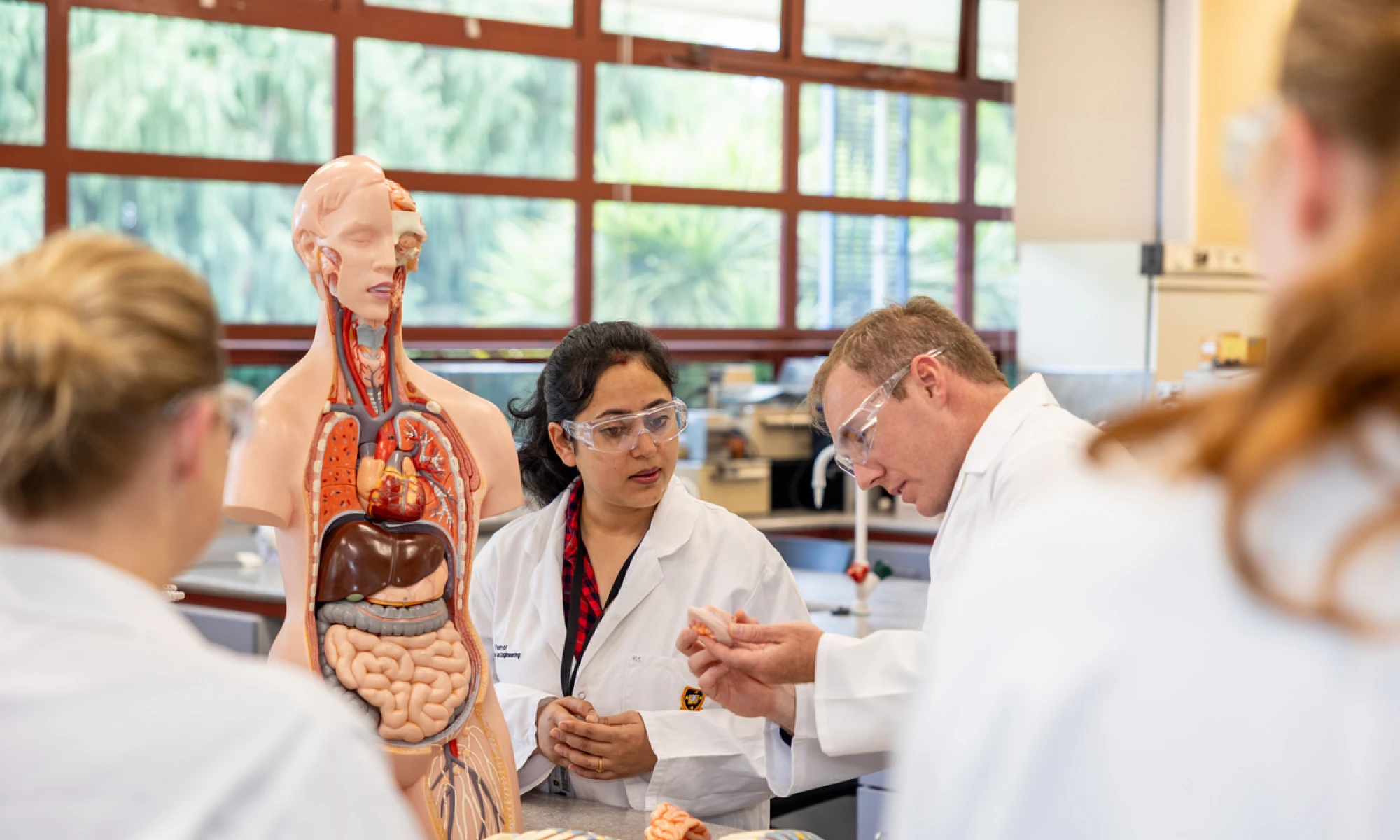Biomedical Sciences

Why study Biomedical Sciences?
Biomedical Sciences involves the study of the body’s function; understanding the science behind medicine, exploring how our bodies work, and investigating what causes disease. The ultimate goal is to improve healthcare outcomes. This knowledge is vital not only for advancing medical research but also for shaping careers across the health sector, from frontline healthcare support to public health policy and community wellbeing.
The Biomedical Sciences major can be studied in both the Bachelor of Health and the Bachelor of Science.
Biomedical Sciences and the Bachelor of Health
Biomedical Sciences in the Bachelor of Health is underpinned by the following six core concepts that set the BHealth apart:
- Māori and indigenous perspectives and practices.
- Holistic understandings of hauora, health and wellbeing.
- Community collaboration and engagement.
- Analytical and communication skills.
- Clear links to regional/rural health, social justice and equity, and critical perspectives.
- Competencies desired in the practices of health professionals, as identified through consultation with key stakeholders and industry.
These foundations prepare graduates for diverse roles within health services, where cultural competence, equity, and strong communication are essential.
Biomedical Sciences and the Bachelor of Science
The Biomedical Sciences major in the Bachelor of Science will gear you up for a career in research - at the cutting edge of medical breakthroughs and discoveries.
By understanding diseases, treatments, and human biology, graduates play a vital role in drug discovery, clinical trials, and designing new treatments. They also contribute to the development of medical technologies such as bio-printable devices that drive medical advancement. This major also provides an excellent foundation for those continuing into graduate medical degrees.
Career opportunities
- Clinical laboratory scientist
- Health Policy Adviser
- Medical/Pharmaceutical/Biotech industries and universities
- Research Scientist
- Research technician
- Medical science writer
- Health communication
Hamilton
Study Biomedical Sciences in these qualifications
Scholarships and prizes
Visit our Scholarship Finder for information about possible scholarships.